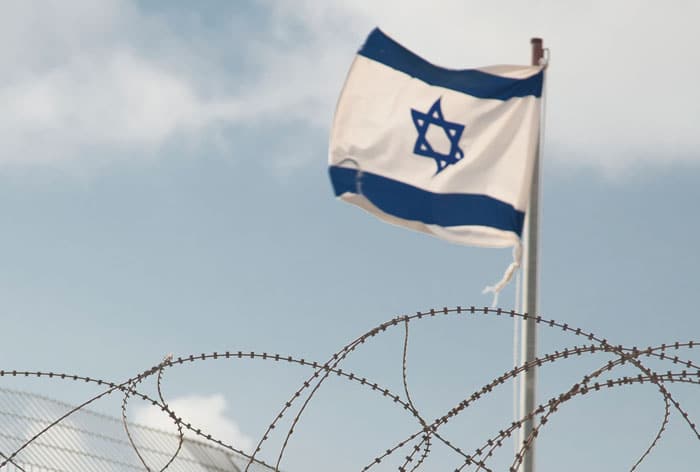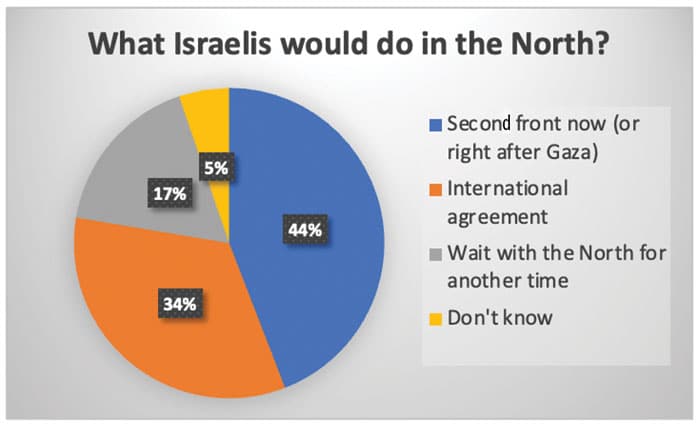 Merrill Images/Getty Images
Merrill Images/Getty Images In general, the world is not a safe place. Humans expect stability and security, reality challenges them. When citizens are asked if their country is a place where they feel safe, it is their point of view that determines the answer: Safe in what sense – as they expect to be safe? As safe as citizens in other places? As safe as their parents were many years ago? Take the average Israeli: He is surely safer here than his grandmother was in Morocco or Poland. He might be safer than his father was, assuming that his father grew up when Israel was still weaker. He is also safer than most Ugandans, Brazilians, Bangladeshis. If some Israelis say that they doesn’t feel safe it means that the safety situation doesn’t meet their expectations. And expectation is a strange thing: The more you get, the more you expect.
Is Israel a safe place? Life expectancy in Israel is relatively high compared to most countries in the world. The Central Bureau of Statistics has a routine of “personal security” surveys. If one compares this data on cities such as the relatively safe Bnei Brak and Petah Tikva, and the relatively less safe Beer Sheva to data on other great world cities (Oslo, Ankara, Vancouver, Milan, Paris), the numbers aren’t bad. Israelis seem to feel safe. Of course, when Israelis are asked whether they feel safe in their city, or safe when they walk in the dark, their answers refer to personal security in the context of their locality. Tel Aviv is a safe city. In most places it is not scary (for men) to walk alone at night.
A question seeking to examine whether Israel is “the safest place for Jews … despite the security situation” is of course a different kind of question. This is not about quality of life in the everyday sense, but rather about terrorism and wars, a question that attempts to measure how Israelis assess Israel’s ability to survive.
A strange thing happens when such an assessment is made. The Center for Jewish Impact (CJI) asked this question in a survey, and discovered the opposite of what one might expect: A rise in the share of Jewish Israelis who feel that Israel is “the safest place for Jews in the world”. So after Oct. 7th, after the horrific massacre around Gaza, after rockets were fired on the north, after towns were evacuated, after hostages were taken – after all these, Israelis say more than in the past that Israel is the safest place for Jews. In the year 2020, 76% of such survey’s respondents agreed that Israel is the safest for Jews. In 2022 the share increased to 82%, and this year – this year! – in a December 2023 survey – 87% agreed that Israel is safer for, well … for you! (if you’re reading this in L.A.).
How can that be?
Here are three possible explanations:
First – maybe Israelis are a just a bit, or more than a bit, delusional about their actual situation, and don’t exactly understand where they live. It’s a tempting possibility to consider, but it doesn’t explain the increase in the share of feeling-safe Israelis from 2020 to 2023.
Second possibility – maybe the war has a psychological effect that makes us Israelis feel a need to insist on the Zionist ethos more than ever before, and maintain the claim that despite of everything, Israel is still the safest place for a Jew. That is, even if we don’t really think or feel that this is so, we do feel the need to say that we do, both to ourselves and to all others, as a way of convincing ourselves that there’s hope, that Israel will regenerate itself to become the safer place that it used to be.
The third possibility is that despite everything that had happened, Israelis also pay attention to what happens there – in your out-of-Israel backyard. The wording of the question in the survey forces us to pay attention, because it specifically talks about the safest place “for Jews.” Is Israel a safe place? maybe not. But is there a safer place for Jews? That is another question. Antisemitism rears its ugly head, on campuses there is a sense of dread, the rhetoric of groups and leaders echoes voices from darker times. So maybe we Israelis were convinced that regardless of the disaster that is unfolding here, Israel is still safer for the Jews, because here they can at least take up arms and defend themselves.
Which of the three options is the one I assume it the most valid? I’d say it’s a combination of the second and the third. And there is something both empowering and depressing about this situation. The second option (psychological effect) represents a strengthening of our identification with Israel, with the Zionist vision, with the Jewish ethos. The third option (what happens in other countries) represents an understanding that living as Jews is by definition less safe. It is a life of lowered expectations. What better evidence does one have than to say that the safest place for Jews is this place, where rockets fly, where soldiers sacrifice their lives, where hostages are awaiting their release. The place where a general war for survival has been going on for more than a hundred years, and a fierce bloody war is now waged for almost a hundred days.
Something I wrote in Hebrew
Yes, Israelis want compromise. But there’s a caveat …
A significant part of Israel’s problems stems from the tendency of all of us to insist on our exact version of the truth. In theory we are all compromisers. We all support unity, we all pray for cohesion. But we all want to achieve this result through a very specific kind of compromise – the other side will give up its position, and thus a compromise will be reached. The ‘right’ wants unity: All that is needed to achieve it is for the ‘left’ to forgo its with two state solution insanity. The ‘left’ wants unity: All that is required is for the ‘right’ forgo its settlements insanity. Once this is done, there will be unity.
A week’s numbers
Last week I wrote about Israel’s Lebanon dilemma. Here are the numbers that prove how difficult it is: from the outside, pressure aimed at avoiding war. From the inside, Jewish Israelis lose patience (survey by JPPI).

A reader’s response:
Dov Polin asks: “Are Israelis watching the U.S. primaries closely?” My answer: should they? If it’s game over, why waste their time?
Shmuel Rosner is senior political editor. For more analysis of Israeli and international politics, visit Rosner’s Domain at jewishjournal.com/rosnersdomain.























 More news and opinions than at a Shabbat dinner, right in your inbox.
More news and opinions than at a Shabbat dinner, right in your inbox.